Moderator: It gives me great pleasure and I am proud to be with you, Mr. President, on the stage. The President of Romania for roughly four and a half years now, he has been Mayor of the city of Sibiu, Hermannstadt, he has been a national politician and now a strong voice in the European arena. President Iohannis is a staunch defender of the independence of the legal system and he is an unwavering fighter against corruption, if I may say this as an outside observer. In three weeks, we have the European elections. Some people say that this is Europe’s rendez-vous with destiny. I do not know if this is a little bit too much of drama, if it is overdramatized, but it tells you what it is at stake. The world out there is nasty, turbulent. Voters are volatile. They are (…) social forces (…) at the social fabrics of our societies, international challenges, demographic, geo-economics, technological, environmental. There is a lot out there. People feel threatened by chance and by the plethora of changes, and I hope you, Mr. President, will help us chart a way out of this plethora of insecurity and concern of the people. This event today deals with democracy, one of the key elements of our form of government. At the previous session, I have explicitly asked if there is a concern about democracy. I would like to pass this question to you. Do we have to be concerned with our way of democracy? Is it under attack? Is it under threat by the illiberal forces out there, by voters’ alienation?
The President of Romania, Mr. Klaus Iohannis: Thank you! Let me start by answering. No, our democracy is not under threat, but before I elaborate a little bit on this, let me say good morning, buongiorno, thank you for the very warm welcome here! I had the occasion, together with the Mayor to visit this extraordinarily beautiful building, and I think this shows, in fact, significant part of our common heritage. It is not so much about the colour or about the space, it is about daring. Our history was led by people who dared more. So let’s go back to that. If we dare more, we will prevail. No, I do not believe that our democracy is under threat, but, yes, our democracy is under stress.
In Romania, we have a very complicated internal situation and quite often people come and ask me “well, is democracy in Romania under threat, is it endangered, is the society in danger?” and I say “no”, but we have a very lively democracy, and I think this is what we have in Europe.
We have upcoming elections and a lot of politicians fear these elections, because populists will win a lot of votes, euro-skeptics are on the rise, but this should not scare us. This should encourage us - the politicians who believe in Europe, in integration in Europe, in a strong Europe - it should make us become even stronger and find ways to convince the Europeans that we have a good future and that we, the politicians, know how to build that future. Definitely, democracy is not under threat, but we have to be stronger and better.
Moderator: Thank you! This is good news and I will take away the first lesson, that we need courage to move forward. It is an important message. Second, we need to reduce stress. How can we reduce the concern of the people or those anxieties that fuel the rise of populists and neo-nationalists, which cannot be disputed?
The President of Romania, Mr. Klaus Iohannis: As you said in your opening statement, we have multiple crises in Europe – Brexit, migration, unemployment, border security, terrorism is a threat, which became more and more inflicting on our societies, and many others we do not even mention anymore, the economic threats, globalization, divergent approaches, if it comes to free trade, and so on and so forth.
People do hear in the news that we have problems. They hear about great changes, they feel that they are not so important anymore and all of this creates insecurity.
If we really want to fight insecurity or if we want to make our Europeans optimistic again, we have to go the basis of this. All these crises together, what do they trigger inside citizens of the old Europe or the new Europe? Do they trigger just fear of the future? Do they trigger existential fears? Do they trigger fears linked to security or do they trigger fear of losing our democracy? Do they trigger fear of losing our common European values?
I think it is a little bit of everything, but, as I have been asked this question quite often, let me say right from the start that in the old Europe and in the new Europe the fears are not identical. This has to be taken into account.
If we look at old Europe, Western Europe, I think, if it comes to the basics, people fear that they will lose what they have. They fear that tomorrow they will have less than today.
If we go to the new Europe, former Eastern countries, it is not the same. People in Eastern Europe rather fear that they will be left behind. They fear that they will not have tomorrow what the old Europe has today.
It is quite different and this makes it virtually impossible to treat everything in the same way, so we have to find local, regional, not only answers, we have to find solutions. Because otherwise our citizens will not believe us.
If it comes to what do we have to do to be credible, we have to come up with projects for the future and this is why I believe that the upcoming Summit in Sibiu, which will be held next week – interesting enough, exactly on the 9th of May, Day of Europe. This is not a coincidence; it was intended to be like this – this Summit is very important, because it is maybe the first time we have a Summit dedicated to the Future of Europe. Of course, we hear a lot of phrases quite often, we hear a lot of politicians talking about the future of Europe. We hear a lot of politicians saying that we have to be close to the citizens again, that we have to react to the citizens’ needs. Well, this sounds very good, but what is it? This is what we are trying to find, what is it, what do we actually have to do, what do we actually have to create to give back to our citizens that optimism, hope for the future and action for the future. Because, if we do not act, if we just complain, we will lose it, we will lose everything. I believe in the European Union, I do not want to lose it, I want to make it stronger, I want to make it better prepared for the future and I want to make it resilient. No matter what comes, we have to deal with it, but I want to make sure that we know how to deal with it.
Moderator: Thank you for this wonderful optimistic interpretation! I take away this as the second lesson of our conversation, do not exclude the people, politically, socially and economically. Because they are an easy prey for the skepticals and put all the blame on the EU. So, Mr. President, you say Romania has a lively debate, but there are no signs that some elements, some parts of the government system, of the judicial system is under threat by forces on the corruption side a little bit? You are the (…) against taken over by certain elements in your country?
The President of Romania, Mr. Klaus Iohannis: Maybe yes, maybe no. We will see that. The history book will tell us if I managed to do that or not, but I am certainly trying. The situation is very complicated in Romania, I don’t want to paint it more pinkish than it is in reality. We have the independence of justice under threat, we have populistic approaches, we have all kind of complicated situations and if we talk about the architecture of our political system, we have something we call a hard cohabitation between the President and the governing majority. This all sounds as a matter of fact, but it is really, very complicated and it is stressing for the citizens, for the public systems and I think that we will have to have very soon a clear answer from our citizens and we will have it because we have now European elections and in parallel I called for a public vote for referendum. We will have presidential elections in November this year and next year we will have parliamentary elections. So, the Romanians will answer, will come with answers for the situation and I am very optimistic that they will come up with the right answer, but that is something we will see after we have our results. The fact that societies are in turmoil, that democracy is under stress and populism on the rise, is something we have to see and we have to react to it, but the reaction cannot be of the same type. Populists become popular, as the word says, because they come up with very simple answers for very complicated problems, but they never deliver. But, as we have our democracy, it takes one mandate at least until the society reacts and says: “Well, they promised, they didn’t deliver, so we will not elect them again”. This is why the political parties, the established political parties, have to come up with real answers for really complicated questions and with good projects. The only thing, which will not function, is imitating the populists. If we imitate the populists, then of course we will become like them, not they like us. This is not going to be a solution for any of our problems. See the problem, tackle it, come up with a project and put it into practice! This is what I understand that a politician has to do and this is what I’ve tried ever since I entered politics in the year 2000. Create projects, put them into practice, tell people: “Look, this was the problem, this was my project, this is what I’ve done”.
Moderator: And, if I may, don’t be shy of political dialogues and debate with your political opponents.
The President of Romania, Mr. Klaus Iohannis: Well, things have to be discussed and you have to talk about it. You have to talk about projects but you also have to talk about results. If I may say, this is one of the major issues where the European Union failed. The European Union is a huge, positive, very good project, very strong project and we achieved so much. The European Union has an impact on each life and each of the European citizens’ lives and a positive impact, a continuous positive impact. Every research shows that the Union led to a better life, to a safer life, to security in Europe. But, guess what? More often than not, we forget to tell the European about this. We concentrate on the crises and forget about the positive results. We talk without end about, for instance, Brexit. This is the theme, we talk about Brexit for three years now. Well, it is a problem, of course, and we have to sort it out. But, during these years, we forgot to talk about the economic results, about the Single Market, about the progress we made, about competitivity in Europe, about the future of Europe. If we continue to talk only about the crises and the threats and not about the solutions, people will be scared and this is not what we want to do.
Moderator: I would say that most is not all people in this room would strongly subscribe to every word you just said. Still the question is: “Why is it so easy, if the EU is so good for us, so important, in terms of security, in terms of economic welfare, commerce, travel, our mobility, labour mobility for most of us. Why is it so easy to demonize the EU, why is it so easy to bash those who are associated with the EU, including the chattering classes, including myself. Why is it so easy to demonize the EU?
The President of Romania, Mr. Klaus Iohannis: I have two major answers or two reasons plus a lot of secondary reasons which I will not mention because it will lead us too far. One of the reasons you, as a journalist, know perfectly well and the fact is that almost no European citizen knows personally or meets personally European politicians. Just a few people meet a few politicians directly, most Europeans get their information through the media. And this is very good, we have a free press, à propos, today I think is the World Press Freedom Day, so who is from the media, congratulations! But the media has certain rules, one of those is unfortunately «good news is no news, bad news is sensation», so if you open newspaper, a TV, whatever, sometimes you hear good news, but most of the times you hear about the crisis, a flood, a bombing, about an uprising, something difficult, threatening, not so often you hear about, for instance, Single Market has been growing and created a better state of the Union through a better competititvity. You don’t hear that on the news. So, that’s one thing, this doesn’t mean that we have to change the media, we just have to change the way we, politicians, depict things, how we create the image, if we manage to create a sort of positive image, it will be used by the media.
The second problem are the politicians themselves, you and I and most of you probably know politicians who go to Brussels and say: “Everything is fine, we have a good Union, a strong Union and we will continue”. But then elections come up and they go home and the electors ask: “Well, Mr. politician, why didn’t you do whatever? Why didn’t you construct that road?“. And the politicians say “Those from Brussels didn’t let me”. So blaming the Union at home is very common and as long as we have a lot of politicians who say that the Union is good and then they go home and say that the Union is not so good, or the Union did not help us, or is the Union’s fault of course people become unsecure and that is what is happening if our politicians say that the Union creates problems for my country, for my community. Then this is a problem. So, we not only have to create projects and to design our future, we have, as politicians, to be quite honest and say ok, if the Union created an opportunity and we managed to move things in the right direction, we have to say that. But if we fail with a project, we have to say well, sorry, it was not a good project or I didn’t know how to put it into practice. But not always try to blame the Brussels establishment. They have their flaws, but we don’t have to blame them for everything.
Moderator: The good news is that we find that the interest of our readers, of television viewers in my country, in European affairs, in European issues, is increasing, quite dramatically so.
The President of Romania, Mr. Klaus Iohannis: That is very good news!
Moderator: Two days ago, on May 1st, we celebrated the 15th anniversary of the admission of ten countries to the EU. Your country and Bulgaria followed a few years after. By all means, enlargement, in my judgement, has been a success. I would not dispute it for a second. Nevertheless, we see some politicians, journalists, call enlargement fatigue. In your judgement, Mr. President, what is the way forward when we look at the Western Balkans countries?
The President of Romania, Mr. Klaus Iohannis: You started talking about the enlargement. I think this was a major step for my country or the major step for my country over the last decades, and it was certainly a major positive step. This is how I see enlargement, the last waves of enlargement. They have not only improved the situation for the new countries, the enlargement also was significant progress for the Union, for the old Europe. So, if people say “Well, you know, accession was good for your country”, then I answer that “It was good for your country too”. If was good for both countries, because it made the Union bigger, stronger and more competitive.
We have to continue! We have to continue the enlargement. We have the Western Balkans waiting to be accepted. We have to make our Union not only larger, but we have to make it stronger, and, by making it stronger, I do not understand only making its economy stronger, I also understand making its security better, making its procedures easier for the Europeans and having a better integration.
You see, we have in Europe two different approaches among politicians. Some, and I admit I am one of those, say that we have to go towards a stronger integration, a better integration, and make the Union stronger in itself. Then it will be strong on the outside too, and can become, for instance, a strong global actor. Other say “No, we do not need that, we need to keep our sovereignty, we need to keep our national competences at home and work together on certain projects”. That is not my opinion, but I admit there are a lot of relevant European politicians having this approach. This is the ongoing discussion now about the architecture and about the future of Europe. Do we have to be stronger together or do we have to be one near the other and not integrated? If you ask me, I am pro-integration and I think this is the path for a stronger Europe. Being better integrated means that, if we accept new members, we have to fully integrate them too, and this is the way I see the Union becoming stronger.
Moderator: I am sure you told the British Prime Minister your view that staying together is better than being alone and weaker. I do not want to ask you about your views on the Brexit, if it’s going to happen at all. Who knows? But what did we learn, what did the rest of the EU – the EU27 – learn from the vote of the British, and particularly the English voters in 2016? Have we done anything to review and reform agenda? What is the lesson that we need to learn from Brexit?
The President of Romania, Mr. Klaus Iohannis: One lesson we certainly have to learn from Brexit is that we have to give the Europeans a feeling of security, of safety and that they matter. This is important nowadays. We do not have anymore societies where people do not care so much if they matter or not. Today, people want to matter. They want their vote to count, to be important. This is also part of the what I see the future of the Union, being closer to the citizens. This does not necessarily means to be physically close. I can meet a lot of people, but I will never be in a position to meet everybody. On the other hand, Europeans want to have a strong connection with the politicians that lead the Union and having a strong connection means voting. We need more positions up for voting. We have to give the European citizens the possibility to vote directly for important positions. For the time being none of the positions we have - leading positions in the EU - are voted by the people. We have an indirect democracy. I think this is one of the problems we face now. This was probably part of the problem with the Brexit because those people said: “What do we control”? They did not feel that they control what is happening in their own country. Of course, this is linked to what we have discussed before. We managed to put into practice so many projects, but we did not talk about those projects. We did not show the people what we did, how we did it, and what the next step is. We did not explain where the Union wants to go. It is true, we have a lot of regulations, but most of them are so technical that the citizens do not care, they do not understand these regulations, despite the fact that they are important. We have to talk more about the future, more about what each citizen can do and why the vote of each citizen counts. This is, in my option, relinking the politicians to the Europeans.
Moderator: I would like to move one step further on the international arena. What is, in your view, the greatest challenge that the EU faces? Is it Russia’s hybrid activities, Russia’s aggressiveness in Eastern Europe? Is it America’s disruption and “America First” policies undermining Western coherence? Or is it China’s geopolitical and, particularly, geo-economical assertiveness in the world?
The President of Romania, Mr. Klaus Iohannis: I think everything is important. It is obvious that, as Europeans, we have to deal with Russia. Russia is our neighbour. We have to deal with Russia. It is obvious that we have to come to terms when it comes to trade with the United States, because the US is our most important partner and this is not only in economics, it is in security. We have to think about NATO and about what we did together and what we can do together. NATO is the strongest Alliance ever, so we have to come to terms. We have to find ways to deal with China, and so on and so forth. We have to deal with all these issues. It is obvious that the world is evolving from a bipolar global situation from the Cold War to a multipolar situation. And guess what? I really want the Union to be an important actor. I want the Union to be one of the important poles in a multipolar world, and this is right now not the case. Unfortunately, the Union is extremely strong economically, but if it comes to world politics our voice is not strong enough. We still have a weak voice and this, I believe, has to change dramatically. The European Union really has to become a global actor, starting from its obviously strong economic position and building on this. We have a pretty long path to go until we become a relevant global actor again, but we can do it and we should do it.
Moderator: This is a wonderful final statement! I will not add anything to it other than simply saying that maybe it is really true that this is the time that Europe has a rendez-vous with its destiny. Please join me in thanking President Iohannis for a wonderful insight, optimistic and hopeful remarks. Thank you very much, Mr. President!

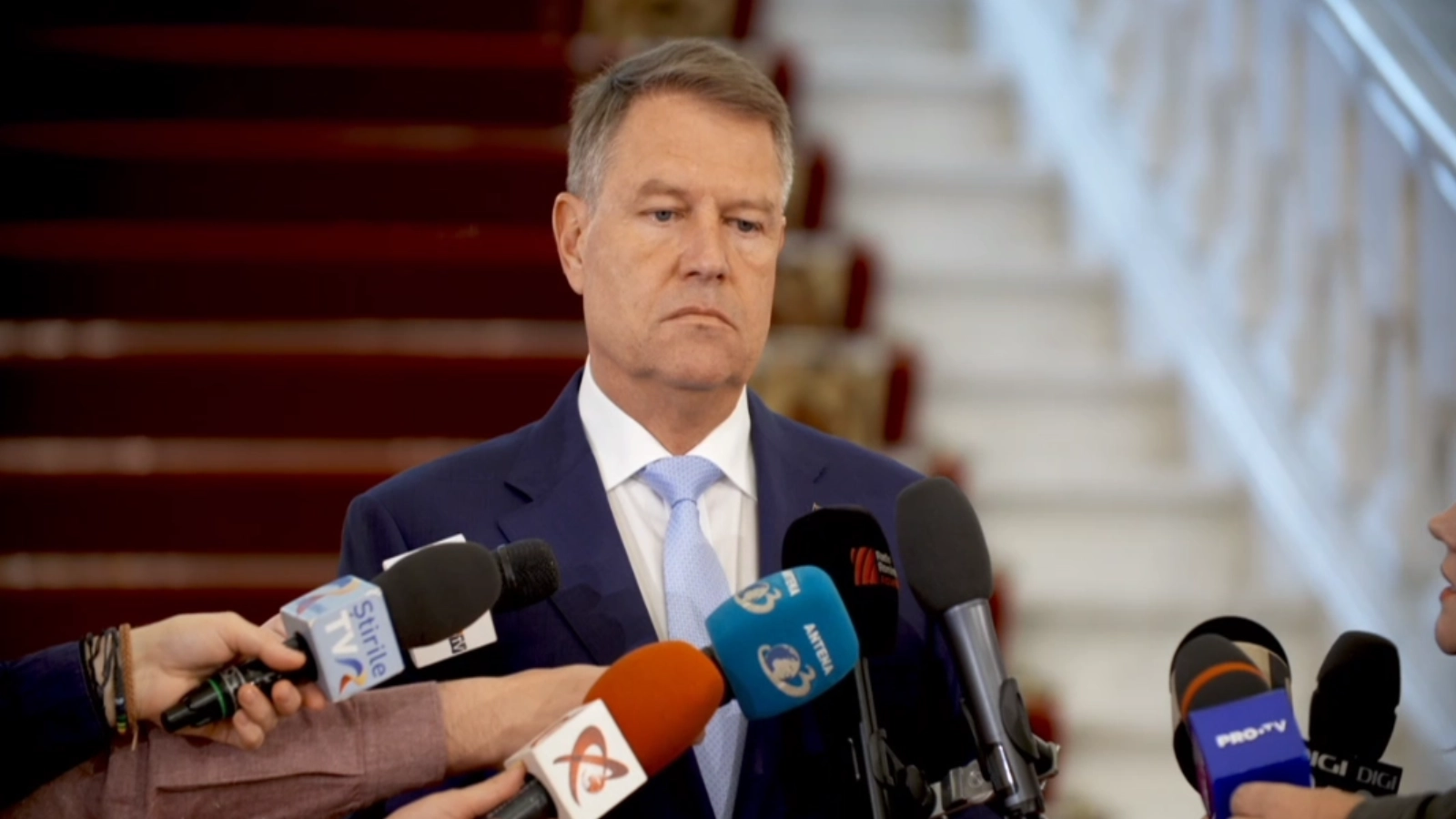
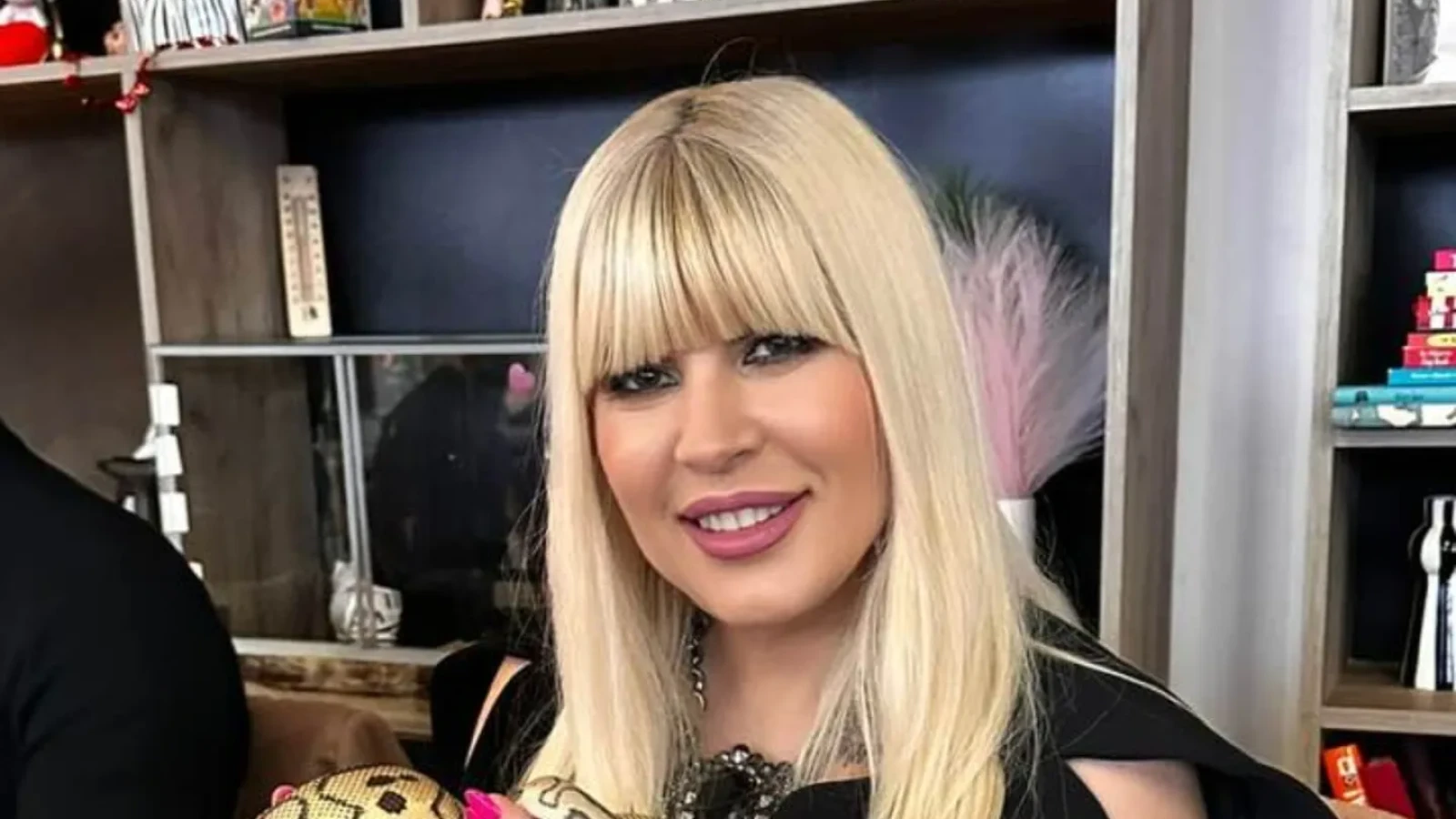
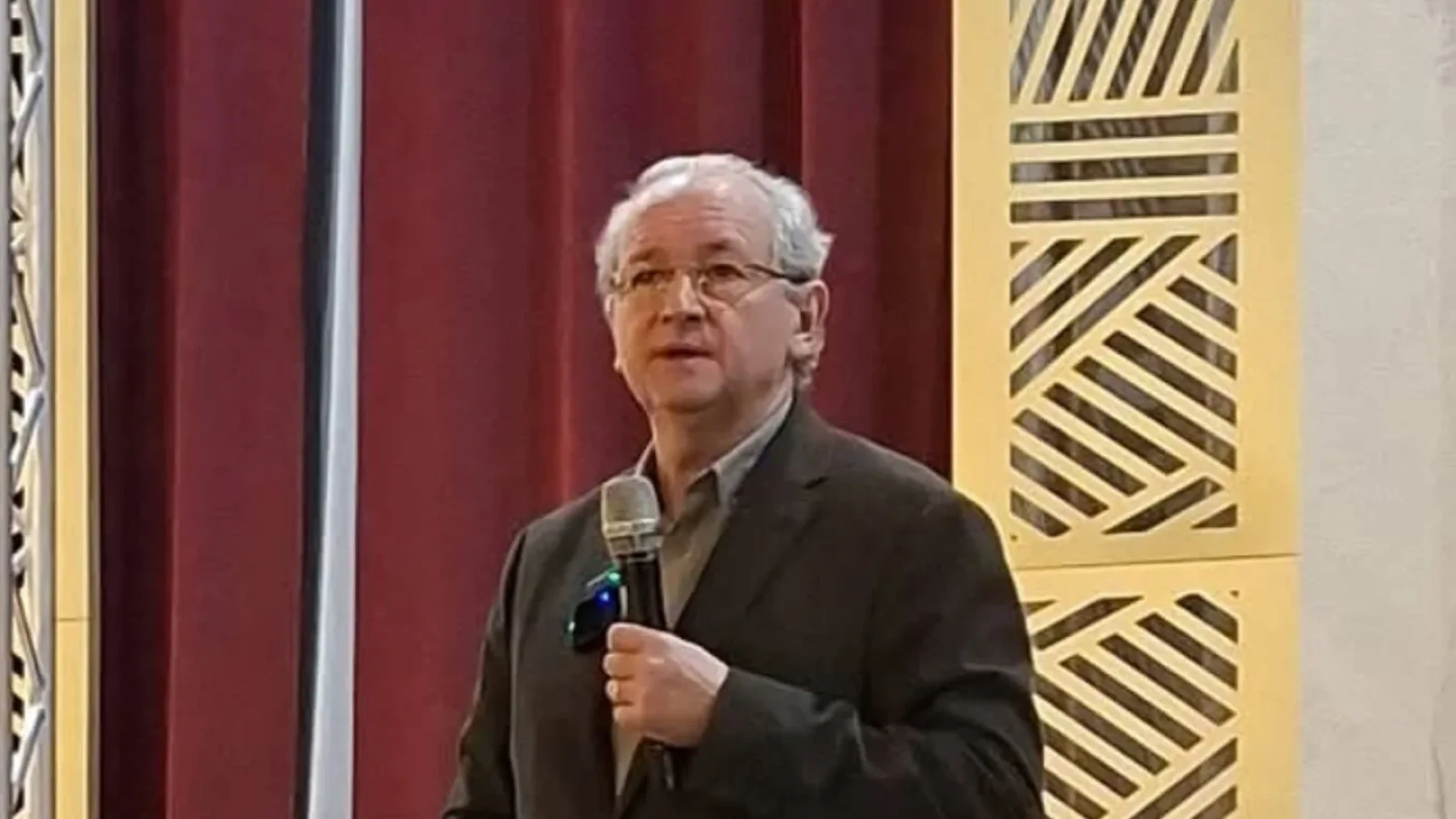

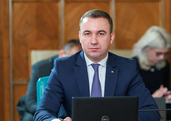

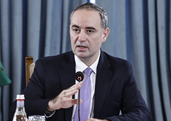
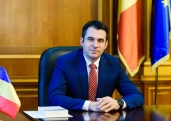

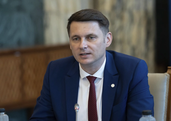
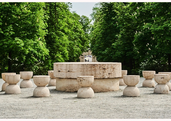
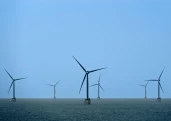
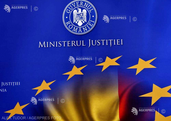



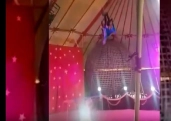


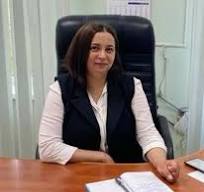
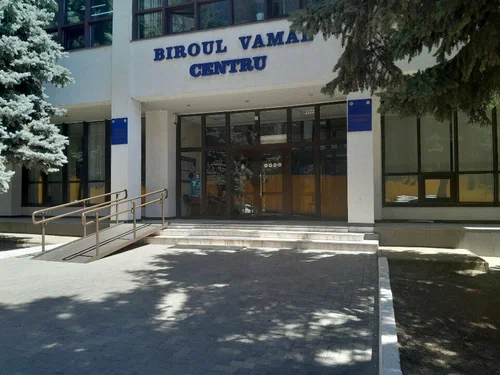
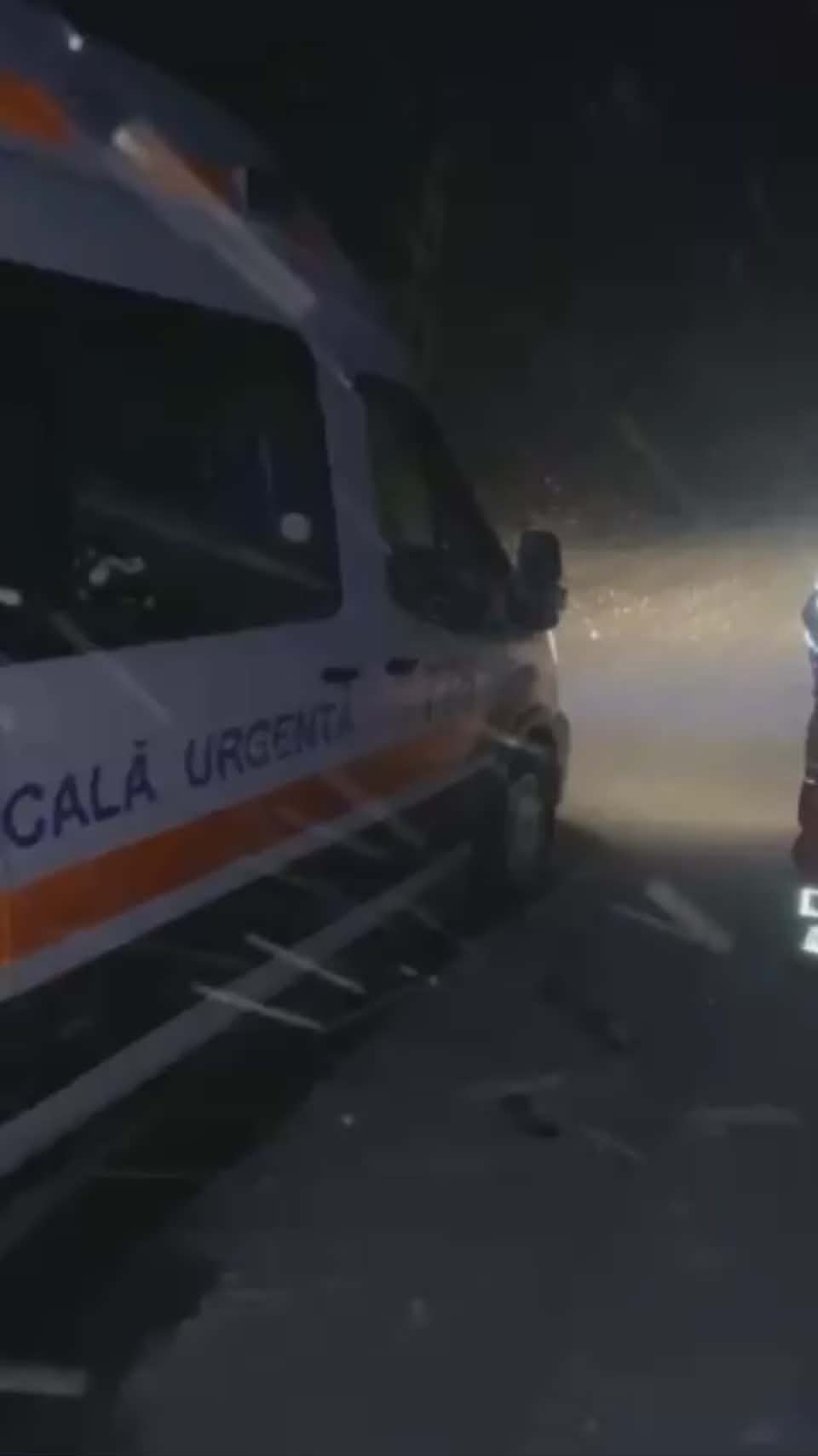
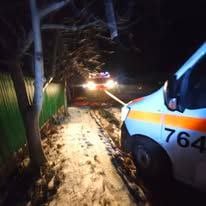

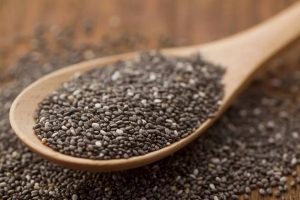


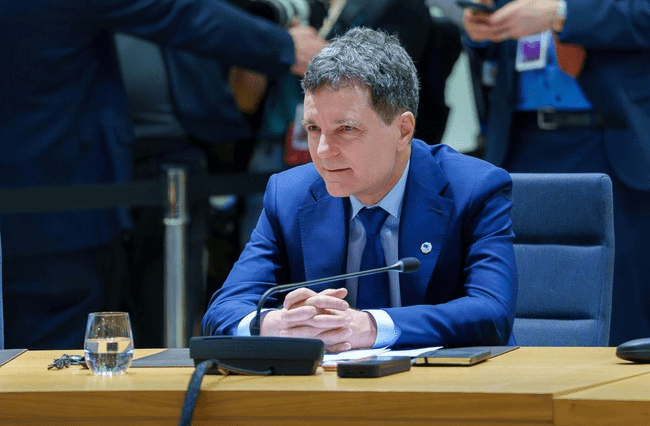



Comentează